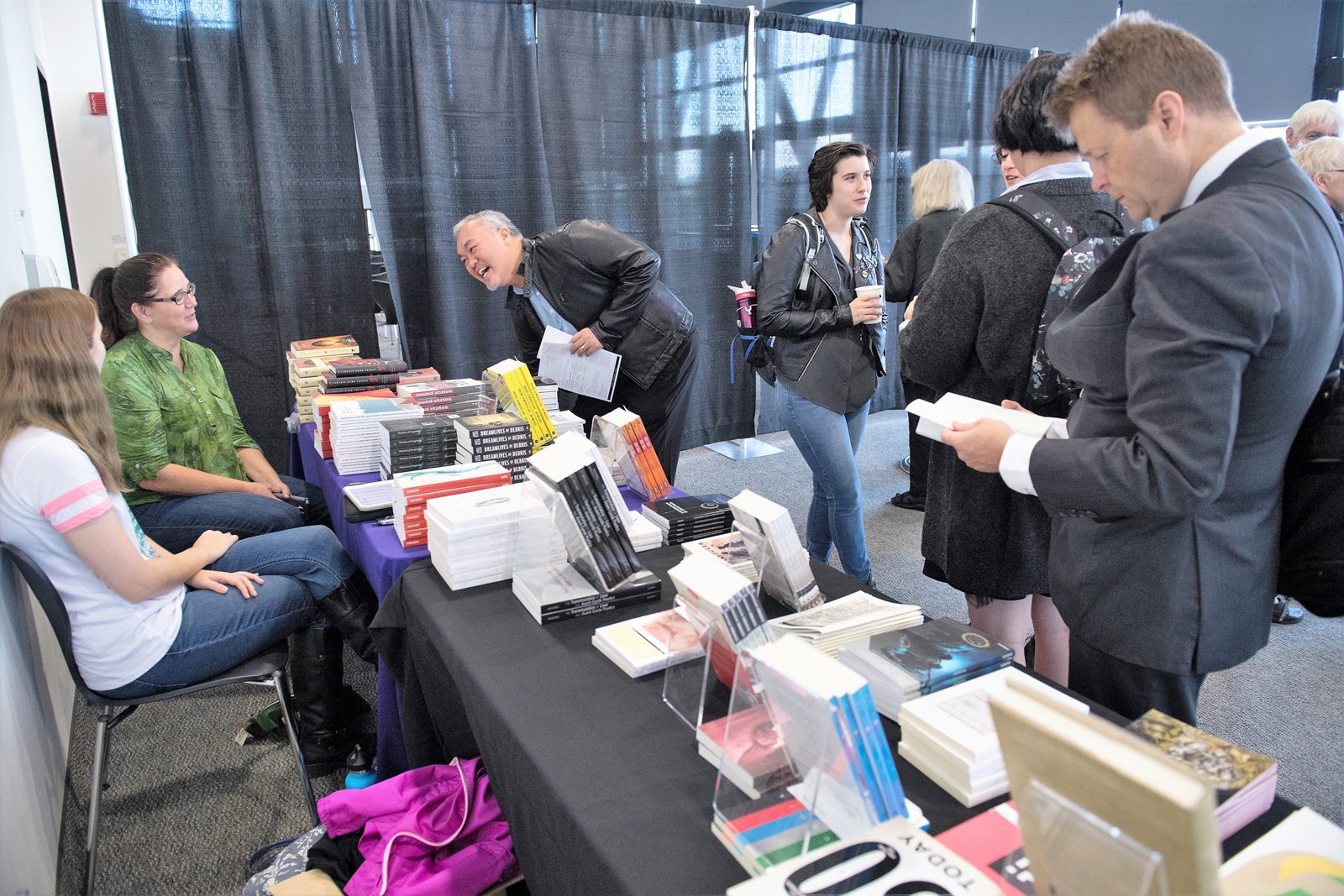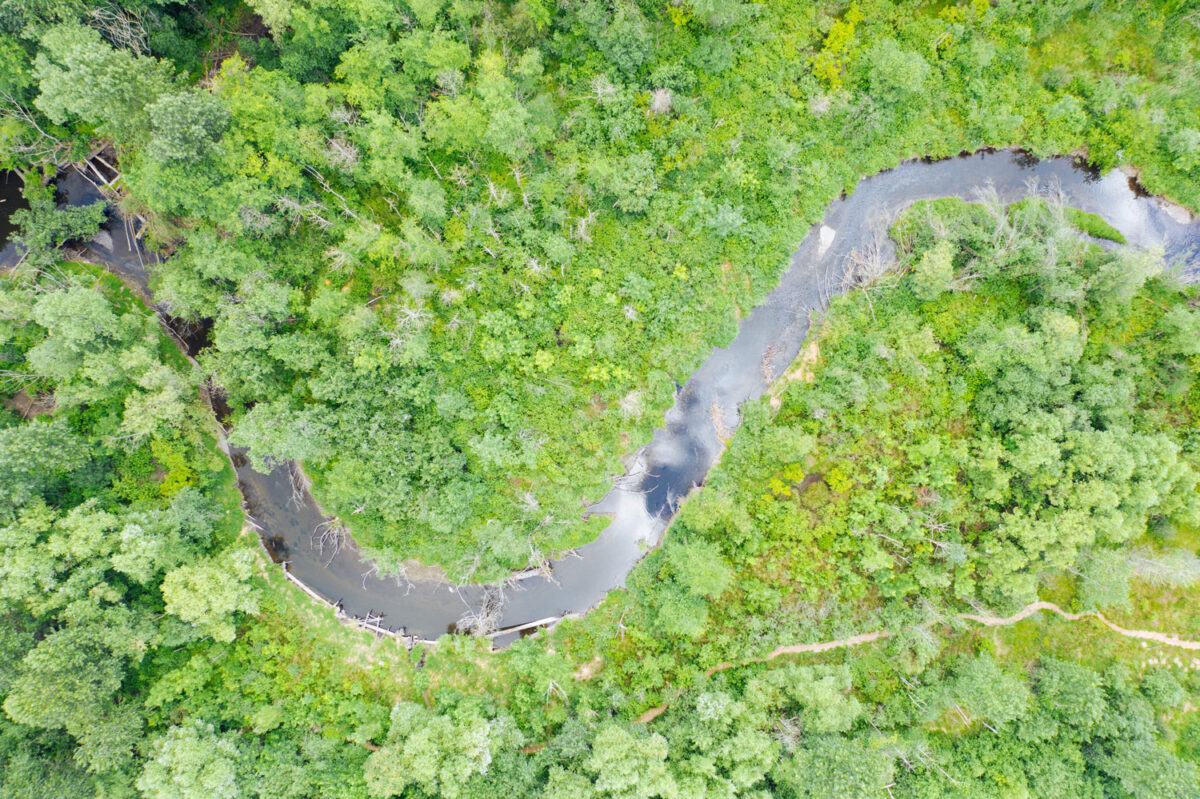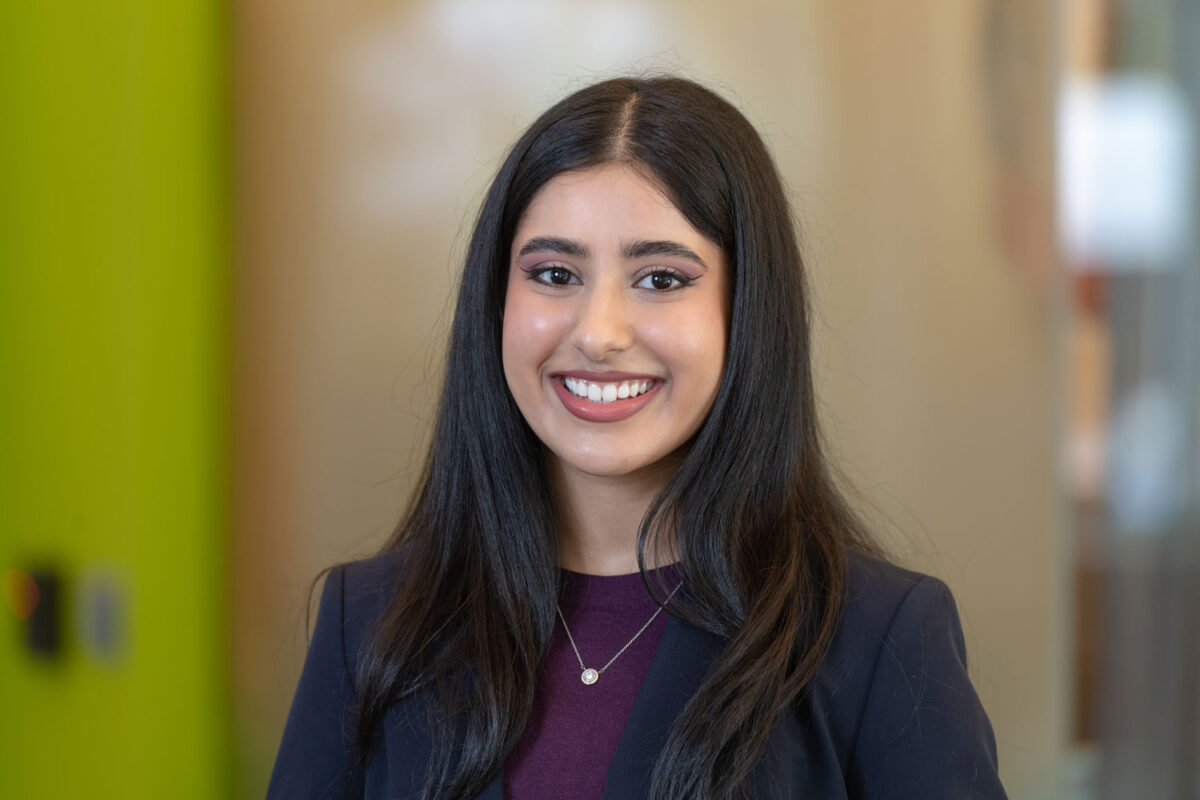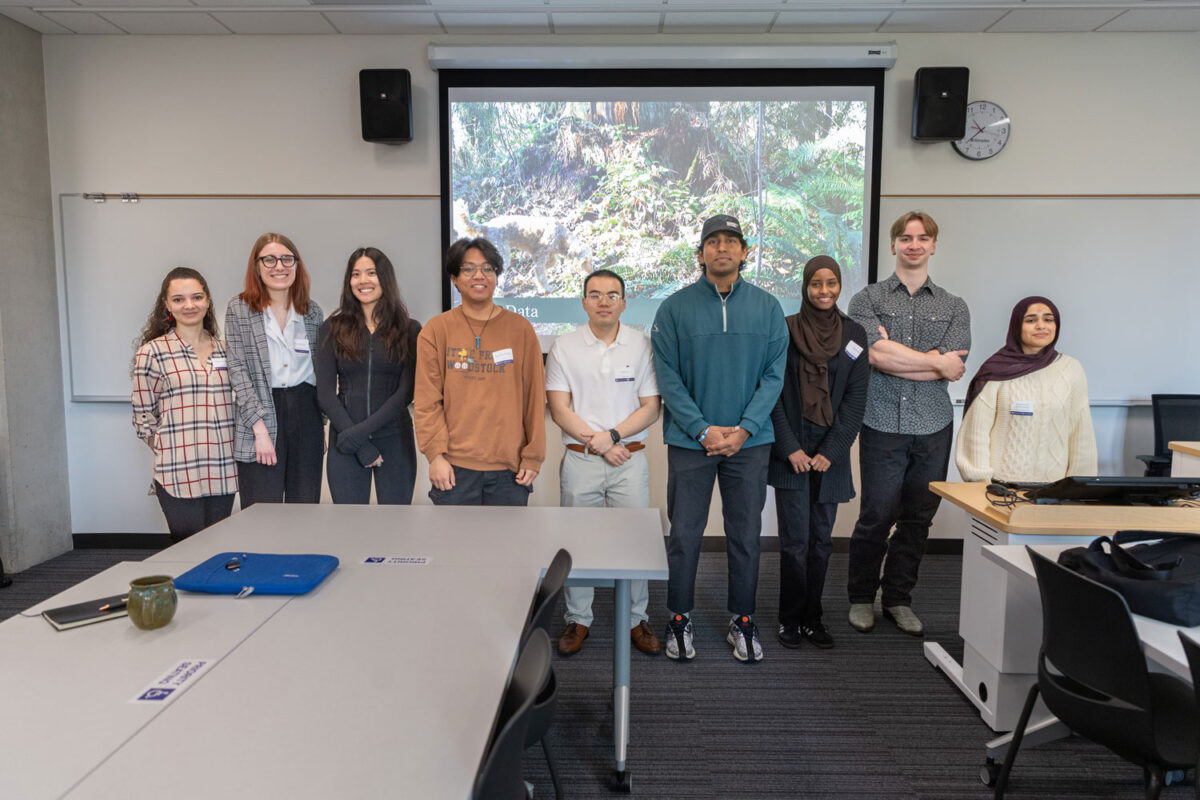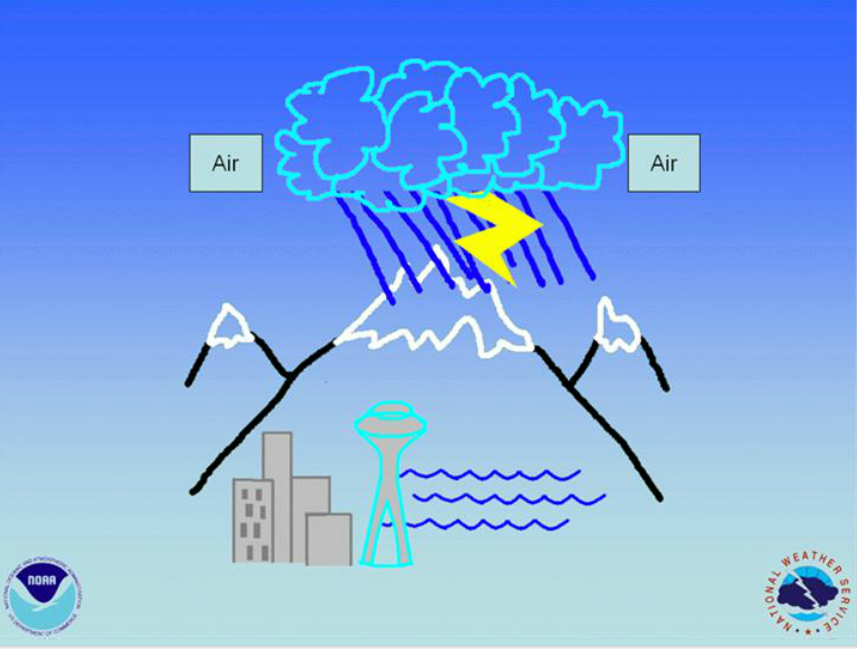
By Douglas Esser
To the National Weather Service, the Convergence Zone is an area north of Seattle where strong westerly winds blowing around the Olympic Mountains converge in sudden rain showers, thunderstorms or snow.
The University of Washington Bothell is in the zone, literally and figuratively. The MFA in Creative Writing & Poetics in the School of Interdisciplinary Arts & Sciences (IAS) has adopted the zone as a metaphor for its Fall Convergence symposium, which brings writers and artists to campus to mix with students. Interactions continue through the year in From the Convergence Zone, a series of visits by two authors each quarter. Another event, the Spring Festival, features a guest artist and serves as a capstone for graduating MFA students to showcase two years of work.
“We try to give students as many opportunities as we can to interact with contemporary writers,” said Amaranth Borsuk, an assistant professor and associate director of the MFA program.

The highlight of this year’s lineup is an April appearance by New York poet and artist Cecilia Vicuna who will have an exhibit at the Henry Art Gallery in Seattle at the same time. Known for using yarn and found detritus in her art, she’s scheduled to create an installation at UW Bothell. Responding to the natural and human-made landscape, it may involve the wetlands or the Ancestors sculpture on campus, Borsuk said.
Vicuna’s visit is part of From the Convergence Zone and also part of the IAS dean’s distinguished speakers series. A native of Chile, Vicuna is known for honoring indigenous knowledge with her art.
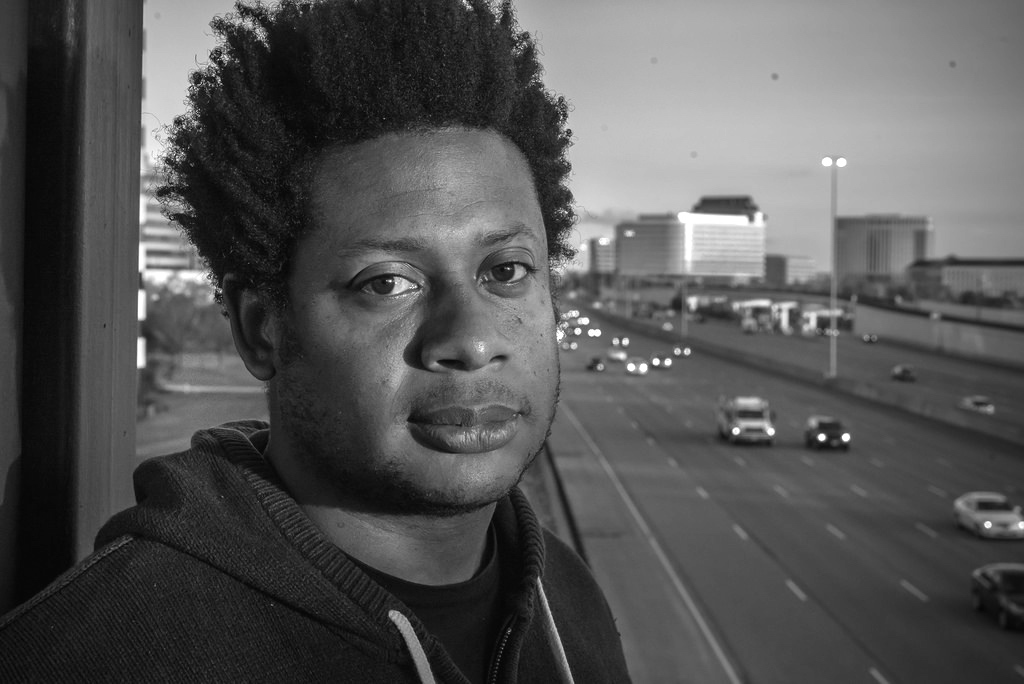
Vicuna’s work with yarn references the Incan Khipu, the ancient record-keeping method using knotted strings. Her work with detritus found at various sites draws “attention to ephemerality because these art installations are meant to decay and disperse,” Borsuk said. “They are precarious, and they remind us of our own precarity.”
Faculty and students may join in Vicuna’s UW Bothell installation, forging ties between environmental science and the arts, Borsuk said.
“We’d love for her to respond to our site,” Borsuk said, “to answer ecological questions about our impact on the environment and to honor the indigenous people of our own region and the knowledge they bring to the land.”
The Fall Convergence, set for Sept. 29 at the North Creek Events Center, features readings by poet Srikanth Reddy and fiction writers Danielle Dutton and Steven Dunn around the theme of “alternating facts.” The idea is to expose students to contemporary writers who use factual material. The event will also engage students with questions in popular culture — “alternative facts” — and the choices artists make in using research, history and their own life experiences, Borsuk said.
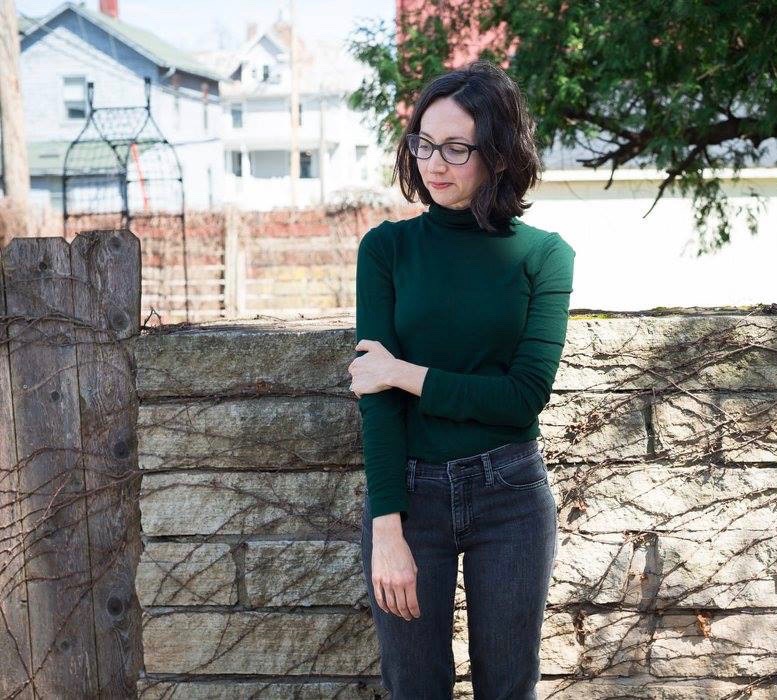
Visiting writers build a sense of community among writers and students, and the Convergence and Spring Festival create spaces where that can happen, said current MFA student Woogee Bae.
Convergence was founded in 2012 by IAS Professor Jeanne Heuving. Author events through the year are open to the campus and the broader community at no charge. They usually are held in the evening, as are MFA classes, for increased accessibility. In addition to events on campus, the MFA program partners with Seattle institutions, such the Henry Art Gallery, the Hugo House writing center, Seattle Arts & Lectures and various bookstores.
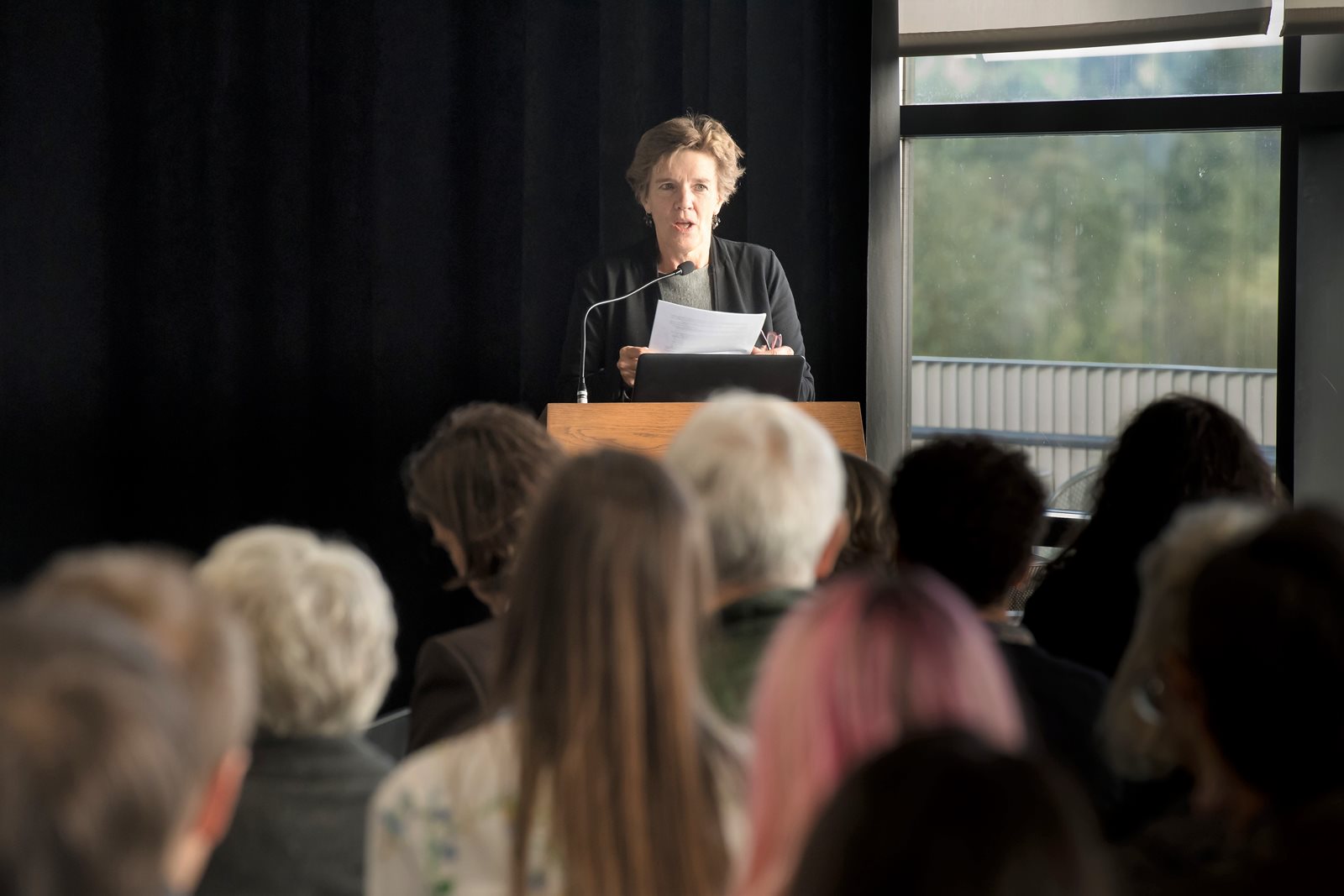
“We really feel that, although Bothell is a few miles outside the city, it’s very much connected to the literary activity that’s happening in Seattle proper,” Borsuk said.
Convergence also creates a sense of community on campus with faculty and students who are interested in the arts and gives them the opportunity to interact with the visitors on questions that are relevant to any thinker, she said.
“It brings together people who are doing all kinds of creative work on our campus,” Borsuk said. “It makes accessible writers and artists we would not otherwise have the chance to interface with. I also hope it enriches our standing in the broader community by opening up our campus to the wider public and showing that this is not something just meant for academia.”
“The Convergence showcases artistic thinking and practice in ways that don’t always get featured on our campus,” said Ted Hiebert, an associate professor and MFA director.
The two-year program has an average cohort of 13 students. Unlike many MFA programs elsewhere, students are not separated by genre. Poets and fiction writers take workshops together and are encouraged to try different kinds of writing — poetry, prose, memoir, fiction — and to try performance or installation art, photography or film to “expand their repertoire of what it means to work with language at this moment,” Borsuk said.
Borsuk, who has been teaching poetry and creative writing at UW Bothell since 2012, is herself a poet and writer. Her most recent work is “The Book,” published in May by The MIT Press. It describes the changing form of physical books over history showing continuity to digital books. On Nov. 27 she will speak in the Pub Night Talk series on “The Shapeshifting Book: From Clay Tablet to Paper, To Touchscreen.” Borsuk also is the faculty mentor to Clamor, UW Bothell’s literary and arts journal.
MFA student Bae, who received an English degree at SUNY Buffalo, looked for a program with the help of an adviser who knew Bae wouldn’t fit in traditional tracks. They discovered UW Bothell’s website.
“What really drew me to the program was its emphasis on poetics and contemporary experimental poetry,” Bae said. “It just made sense to continue my creative studies in an environment that encourages my curiosity and innovation without pressuring me to have all the answers.”
Faculty are supportive, affirming and enthusiastic about the works students are producing, Bae said.
“Often times, when I tell people in Seattle that I’m an MFA candidate at Bothell, their first response is, ‘I’ve heard that program is really experimental and weird,’ and it’s really delightful to hear,” Bae said. “I’m glad Bothell’s being recognized as a place that challenges those literary traditions.”
